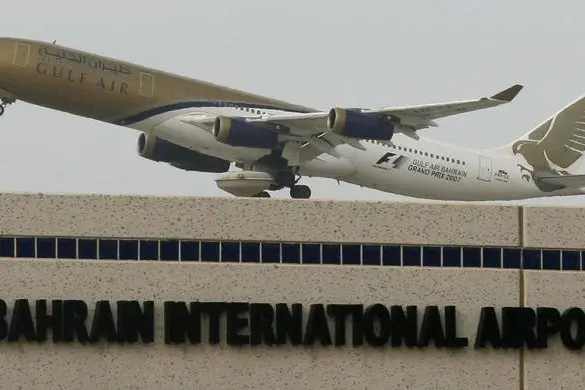PHOTO
MANAMA: Bahrain’s national carrier expects to transport more than seven million passengers this year, seven per cent higher than 6.5m last year.
Gulf Air’s chief executive Krešimir Kuko told the GDN in an exclusive interview that the airline is also confident of retaining load factor at around 77pc this year.
He said the airline saw substantial growth in 2019, especially in high-volume sectors like the Indian subcontinent where it has seen load factors going up to 90pc, with the overall average across the network coming in at about 77pc, a few notches better than 2018.
Load factor is a measure of the capacity utilisation of airlines and is generally used to assess how efficiently a carrier fills seats and generates fare revenue.
However, Mr Ku?ko expects 2020 to be a challenging year because it is building significant capacity and network expansion in long haul operations.
“We will be launching Milan and Kuala Lumpur on a daily basis, all year round, whereas Munich and Mykonos will be seasonal four times and three times a week respectively in the summer. Moreover, we will operate two weekly flights during the summer to Nice in France.
“Basically this year, the growth is going on to long haul, so we need to balance our West and East bound traffic while still keeping a strong position in the region,” he said.
On fleet expansion plans, he said three more 787 Dreamliners will join the fleet this year which will conclude the renewal of Gulf Air’s long haul fleet comprising all Boeing 787-9 Dreamliners.
The airline received its seventh Dreamliner last November and its final Airbus A-330 will be retired this year.
In terms of the Dreamliner, the passenger experience is unique from different points, he said.
“Our Falcon Gold business class seat is basically first class experience by industry standards. The luxury experience also applies to economy class with bigger seats and more leg room and bigger screens in the in-flight entertainment system.”
The airline also expects to receive three Airbus 321neos this year and a fourth one to join the fleet early next year.
“The Airbus 321neos are planned for Europe predominantly as there will be flatbed seats in Falcon Gold business class which is also part of our overall boutique concept,” said the official.
Last year it received additional Airbus 320neos taking the total to five aircraft; and seven more to come.
In 2019, Gulf Air introduced the boutique concept as part of an overall strategy making it a key generator of economic growth.
“We have no intention to become another big airline and our goal is to offer more personalised service to our passengers and to offer them unique travel experience from the moment the journey starts to the moment journey ends.”
ALSO READ: Special flights for stranded Bahrainis
Gulf Air elevated the product standard so it’s really differentiated from the competition and “our ultimate goal is to become the airline of choice and not the airline of convenience” said the official.
“We are putting accent in our future growth but with more focus on millennials, premium leisure travellers and on business and corporate travellers. It’s important to get the boutique concept working in the right way, and therefore we launched premium leisure destinations Malaga, Salalah and the Maldives last year.”
As Bahrain’s flag carrier, Gulf Air has high expectations from the new passenger terminal at its home base – Bahrain International Airport.
The new terminal is due to open shortly boosting the airport’s passenger capacity to 14m per year.
“It will be an important addition to our overall boutique strategy by offering improved customer service and experience.
“We expect to offer to our passengers seamless and faster transfer than today. We will open a new state-of-the-art Falcon Gold lounge, much bigger than the present one, with features that will hopefully make our passengers want to come earlier than usual,” said Mr Ku?ko.
He said the present terminal is already stretched to capacity especially during the peak season.
“At times we have around 20,000 travellers moving through the terminal daily, which makes it challenging to deal with operational requirements of all the passengers.”
Gulf Air contributes around 60pc traffic to the airport in the current scenario and would continue to be the major driver of passenger volumes in the new terminal, he said.
Talking about the wider strategy to expand the airline’s global footprint, the CEO said it has signed a number of code-share agreements and is looking beyond.
“Since we don’t have hundreds of aircraft, the most efficient way to grow our network is through commercial partnerships at different levels with other airlines.
“We already have 13 code-share agreements and expect to sign a few more this year. Ultimately we would like to go into JV deals with major airlines, which is the ultimate level of commercial co-operation. When this happens, you make joint investment efforts and share results on certain routes.”
The airline has signed a memorandum of understanding with Indian private airline SpiceJet – one of the fastest growing in the world with 200 plus aircraft on order.
Mr Ku?ko said co-operation between the two can potentially go beyond passenger traffic and also include cargo and IT to benefit both companies.
Bahrainisation is a core value at Gulf Air, he said.
“There are certain jobs and roles where we have an extremely high percentage of Bahrainis, for instance, 100pc of second officers and male cabin crew are Bahraini as are 95pc of first officers.
“In the headquarters, around 90pc of staff are Bahraini.
The degree of localisation at Gulf Air is incomparable to any other airline in the region and one of the highest in the kingdom, said Mr Ku?ko.
© Copyright 2019 www.gdnonline.com
Copyright 2019 Al Hilal Publishing and Marketing Group Provided by SyndiGate Media Inc. (Syndigate.info).





















